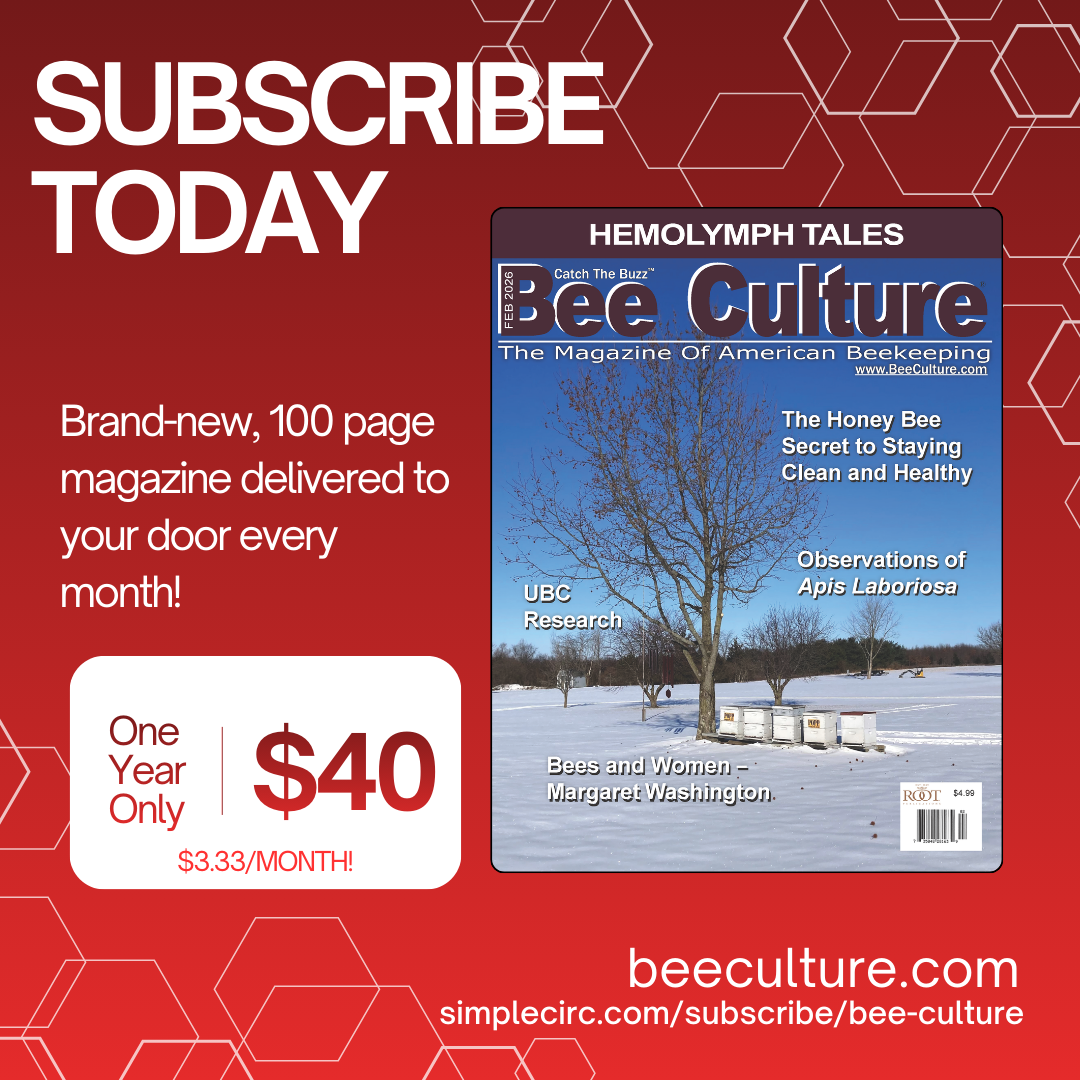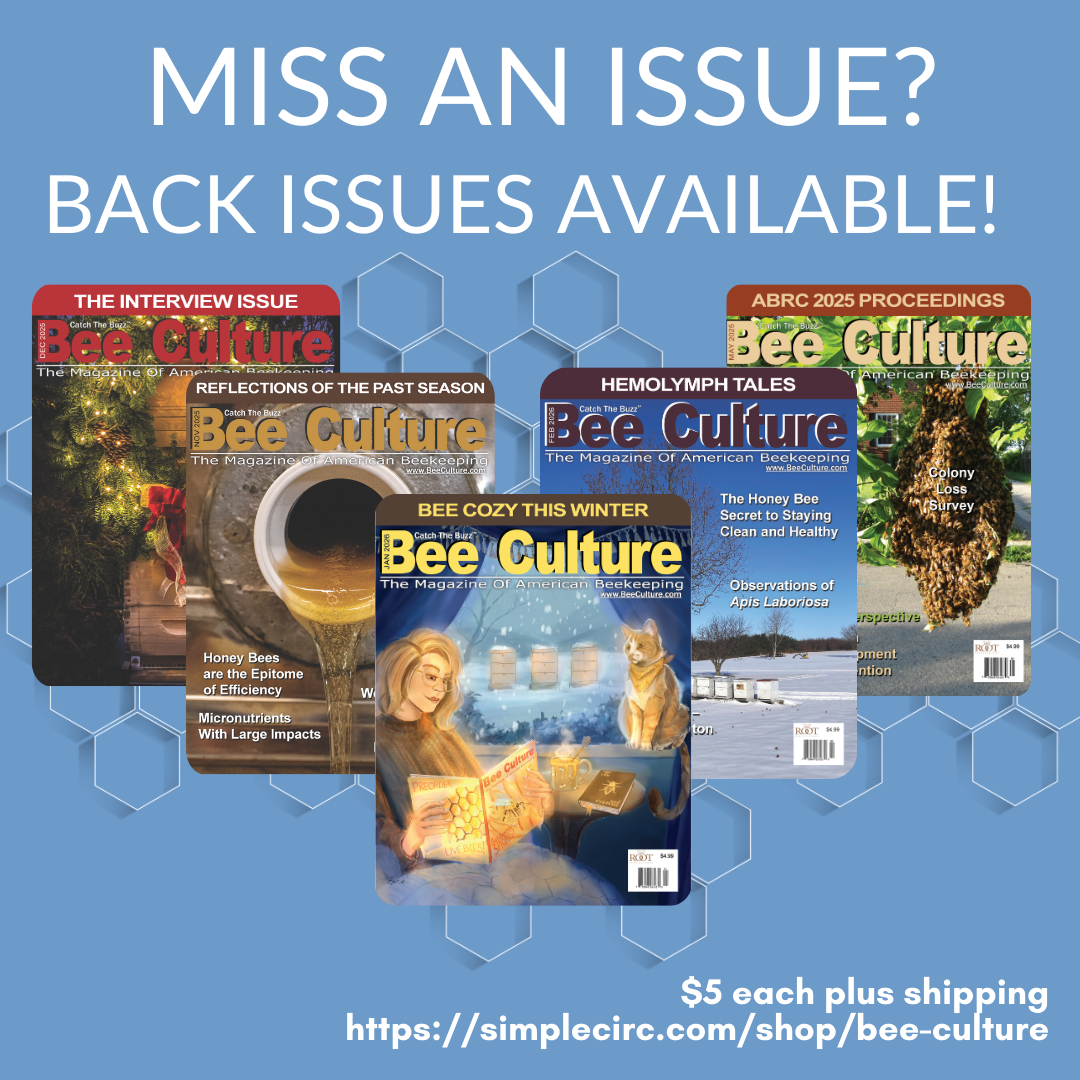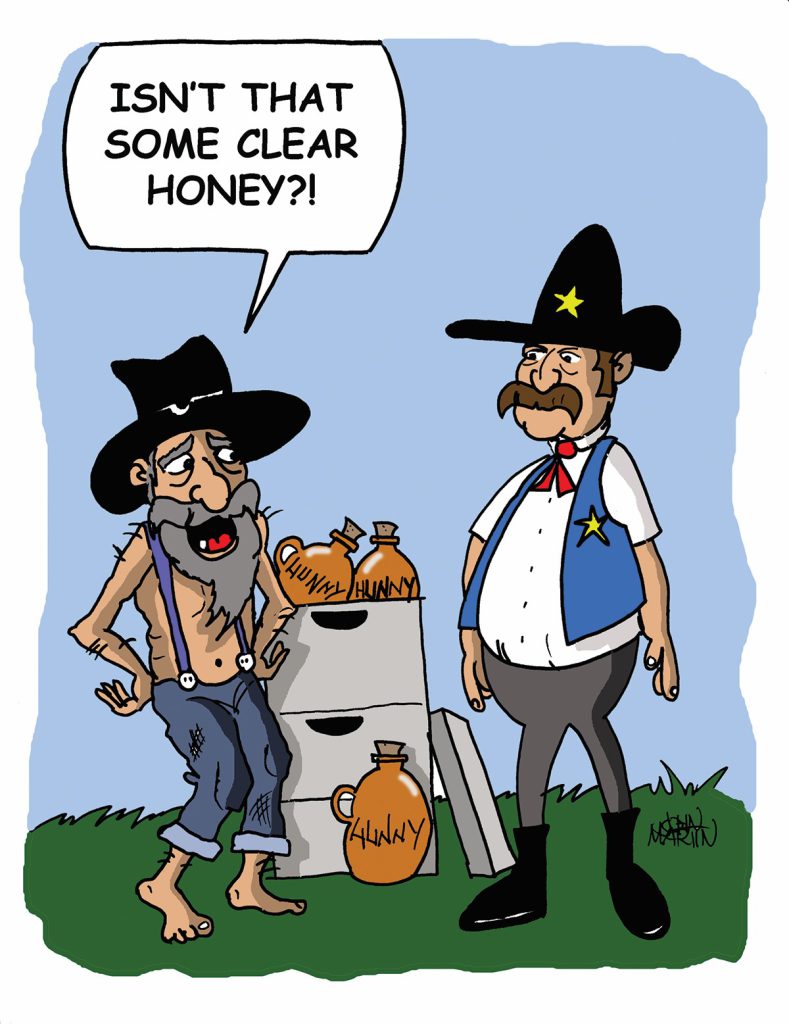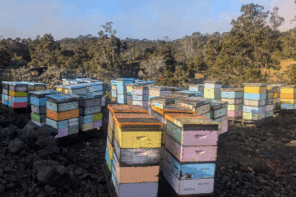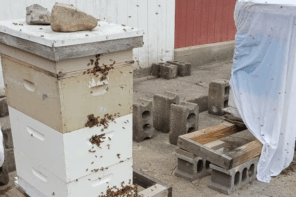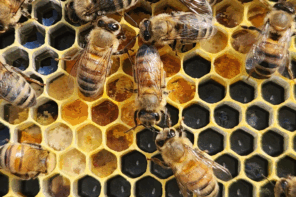Stephen Bishop
Some curious readers have inquired about my credentials, and some conspiratorially-inclined question whether I even exist. The same happened with Shakespeare; he wrote all those plays and sappy sonnets and now people question whether a writer from such humble origins as Stratford-upon-Avon was capable of contributing to the Western literary canon. Some believe the Bard was really Francis Bacon or some other hoity-toity, well-educated chap from the big city of London, which is really offensive to writers, Shakespeare and I included, who hail from humble rural origins.
Truth is, I hate to compare myself to some bloke like Shakespeare, who stooped low enough to write rhyming poetry (which is many stoops lower than writing beekeeping humor), but vicious rumors are currently circulating about the authorship of my contributions to the beekeeping world. This gossip implies that a mere member of the Sulfur Springs Beekeepers and Hive Tool Collectors Association, Langstroth Chapter (SSBHTCA, LC), would hardly be capable of spelling, much less stringing together enough sentences to produce such a literary masterpiece as “The Beekeeping Barkeep.” Some have suggested that Stephen Bishop is a joint pseudonym that more distinguished beekeeping authors operate under when they tire of writing practical, helpful stuff. (After some consideration, I’m okay with this theory, so long as they write and I get paid.)
But to assure you I’m a real bonafide member of the SSBHTCA, LC, I thought I’d produce evidence of my existence—the minutes of our last meeting, at which I acted as recording secretary and recorded myself in attendance:
The regular meeting of the Sulfur Springs Beekeepers and Hive Tool Collectors Association, Langstroth Chapter, commenced at 6:07 pm on July 23rd at the Sulfur Springs Agricultural Office with a rousing rendition of the Pledge of Allegiance and a unanimous removal of hats.
Stephen Bishop, acting recording secretary, read the minutes from the June 19th meeting. A lively discussion occurred over whether honey bee is actually one or two words. Google was consulted to discover Merriam-Webster prefers one word, while entomologists prefer two words. Some civil disagreement occurred between members of the science committee and members of the literary committee over which source was more authoritative. Eventually, Hal Stone proposed a solution to appease both sides: The spelling of honey bee will rotate between one word and two words, and a coin will be flipped at the beginning of each meeting to decide which spelling is used first each night. Brian Wethers made a motion to approve this new policy, the motion was seconded by Bob Underwood, and the honey bee spelling policy was approved.
Bob Underwood gave the treasurer’s report. Unfortunately, proceeds from dues had declined over the previous year. He estimated that the Langstroth Chapter of the SSBHTCA had lost approximately thirty percent of the revenue needed for the operating budget due to members leaving for the Top Bar Chapter, formed after the War of Top Bar Aggression. Mr. Underwood implored members to increase their giving to fight the top bar propaganda espoused by the rebellious faction of the SSBHTCA. Lankford Stanley donated two dollars on the spot.
Edward Tedham, outreach committee member, gave the outreach report. Participating in the Fourth of July Parade produced much publicity as two members nearly passed out while marching in bee suits. Thankfully, Sulfur Springs Fire Engine 1 followed our marchers, and firemen quickly responded to the slight incident of overheating. A suggestion was entertained to change the outreach to the Christmas parade; however, others noted that marching in bee suits at Christmas might bewilder onlookers who could easily confuse us with a roving troop of snowmen. To allow the outreach committee time to research the implications of the suggestion, the issue of parade marching was tabled until the September meeting.
Dr. Elizabeth Haney, chairwoman of the science committee, reviewed a study from the Journal of Entomology that details the effects of alcohol consumption on bee flight patterns. Researchers at the University of Toledo fed forager bees sugar water spiked with alcohol. Bees from the group fed 80-proof sugar water crashed and passed out on blossoms at a rate 52 times higher than the teetotaling control group that consumed only water. The review sparked vigorous story-telling:
- Bob Underwood told a story about the time he accidentally fed fermented grain to hogs, which caused a few lightweights to temporarily stumble around the hog lot, but otherwise he noted no lasting effects.
- Walter Camp told a story about a young calf that came down with bloat, which caused the calf’s breath to reek of beer. He then tubed the calf to release the gas, which made the whole stall smell like a beer joint (Mr. Camp wanted it noted that he doesn’t approve of beer-drinking and was only guessing the stall smelled like a beer joint). The calf lived, and everyone sighed in relief.
- Charles McSwain told a story about an old-time moonshiner named Lester who hid jars of moonshine in his hives. Though suspected of home brewing, Lester got away with the ruse for a long while until an astute deputy began wondering why Lester’s hives were always so tall, even in the dead of Winter. The deputy rode out to Lester’s homeplace and asked to inspect the hives. Lester said the bees wouldn’t much appreciate that, it being the middle of winter, but the deputy persisted. Lo and behold, when the deputy removed the honey supers from one hive, there were no frames or honeycomb, just stacks of quart mason jars. Lester said, “ain’t that some of the clearest vetch honey you’ve ever seen – I got the bees trained to put it straight it the jars.” Everyone chuckled, and a discussion of light types of honey began, with clover, locust, and vetch honey being deemed the clearest on this side of the Broad River.
With great vigor, Catherine Brady, chairwoman of the literary committee, read a poem she had written called the “The Fateful Flight,” which ended with a blissful queen flying home, her mating flight over, only to be eaten by a barn swallow. Walter Camp said barn swallows try to nest on the eave of his front porch every year, but he rips down their construction until they decide to relocate their development.
With no further business to discuss, the meeting was adjourned at 8:47 PM and was deemed a great success by all in attendance.
Stephen Bishop writes agricultural humor and records minutes for the SSBHTCA, LC, though some believe he is a double agent for the rebellious Top Bar chapter. You can see more of his work at misfitfarmer.com or follow him on Twitter at @themisfitfarmer.


